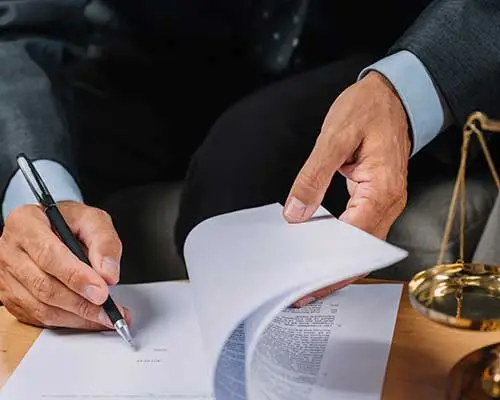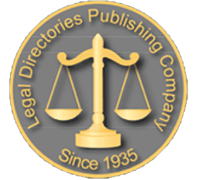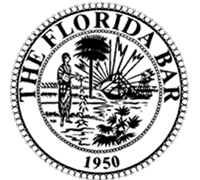When to Hire a Business Fraud Attorney (And Why)
Business fraud isn’t always a dramatic, clear-cut crime. More often, it’s a slow burn of subtle deceptions, missing documents, and financial numbers that just don’t feel right. This ambiguity can be paralyzing. You might second-guess your instincts, wondering if you’re overreacting or if there’s a simple explanation for the discrepancies. The complexity of financial records and legal contracts can make it feel impossible to find concrete proof of wrongdoing on your own. This is where clarity is key. A skilled business fraud attorney is trained to cut through the confusion, identify concrete evidence, and build a coherent case, turning your suspicions into a strategic plan of action.
Key Takeaways
- Build a fraud-resistant business from the ground up: The most effective way to handle fraud is to prevent it. Establish strong internal controls, like separating financial duties, and conduct regular audits to catch inconsistencies early. A proactive approach is your best defense.
- Trust your instincts, but rely on evidence: If something feels off in your financials or with employee behavior, pay attention. Your first move should be to carefully document everything—from original records to digital communications—without altering any information. This evidence is the foundation of any future legal action.
- Engage a legal strategist when you suspect fraud: A specialized business fraud attorney is essential for navigating the complexities of your case. They can legally obtain evidence you can’t access on your own and develop a clear plan to either recover your losses or defend your company’s reputation.
What Does a Business Fraud Attorney Do?
When you suspect fraud has occurred, it can feel overwhelming. You might not know where to start, what to look for, or how to fight back. This is where a business fraud attorney comes in. Think of them as your dedicated legal strategist, focused on untangling complex financial deceptions and fighting for your company’s best interests. Whether your business has been the victim of a scheme or is facing accusations, their job is to represent you in civil court.
A business fraud attorney handles the entire legal process, from the initial investigation to courtroom litigation. They work to uncover the truth, build a strong case, and pursue a resolution that either recovers your losses or defends your reputation. They are skilled in the specific nuances of Florida business law and know what it takes to prove or disprove allegations of deceit. Their goal is to provide clarity and a clear path forward, helping you make informed decisions to protect your company’s finances and future.
The Types of Cases They Handle
Business fraud attorneys handle a variety of civil cases where intentional deception for financial gain is at the core of the dispute. They can represent businesses that have lost money due to fraudulent acts (the plaintiffs) as well as companies or individuals who have been wrongly accused of committing fraud (the defendants). This dual perspective is valuable because it means they understand the strategies used on both sides of a case.
Common cases include contract fraud, where one party intentionally misrepresents facts in a business agreement, and investment fraud, where someone is tricked into a bogus investment scheme. They also handle cases involving misrepresentation in real estate transactions, partnership disputes where one partner acts deceitfully, and situations where a competitor uses false statements to harm your business.
How They Protect Your Business
First and foremost, a business fraud attorney acts as your advocate. If your business has been cheated, their primary goal is to help you recover the money or assets you’ve lost. They do this by building a compelling case to hold the responsible parties accountable. On the flip side, if your business is facing accusations of fraud, your attorney will mount a strong defense to protect your assets and professional reputation.
This protection extends beyond the courtroom. A skilled attorney can help you deal with the fallout of a fraud allegation, manage communications, and work to resolve the dispute before it escalates into a lengthy legal battle. The right legal team provides the guidance you need to make sound decisions under pressure, ensuring your business is shielded from further harm.
Their Role in Investigation and Documentation
One of the most critical roles a business fraud attorney plays is in the investigation. Proving fraud requires specific evidence, and your attorney knows exactly what to look for and how to gather it legally. They will help you collect and preserve documents, digital communications, and financial records in a way that ensures they are admissible in court. This process is meticulous and essential for building a strong case.
To prove fraud in a civil claim, you generally need to show that someone made a false statement they knew was untrue, that you reasonably relied on that statement, and that you suffered financial harm as a result. Your attorney will work to piece together the evidence to meet these legal standards. They handle the complexities of the discovery process, which can include requesting documents, deposing witnesses, and working with forensic experts to trace the deception.
Understanding Legal Fees
It’s natural to be concerned about the cost of hiring an attorney, but it’s important not to let misconceptions stop you from seeking help. Most people are surprised to learn that working with a specialized law firm can be more accessible than they think. Reputable attorneys are transparent about their fees and will discuss the costs with you during an initial consultation.
Fee structures can vary. Some attorneys may work on an hourly basis, while others might propose a flat fee for specific services or a contingency fee for cases where they are recovering money on your behalf. The first step is to schedule a consultation to discuss the details of your situation. This meeting allows you to understand your legal options and get a clear picture of the potential costs involved, with no obligation.
How to Spot the Signs of Business Fraud
Fraud can be a quiet threat, often starting small and growing unnoticed until it causes significant damage. The key to protecting your business is learning to recognize the early warning signs. While you trust your team and your partners, being vigilant isn’t about suspicion—it’s about smart business ownership. Fraudulent activities often leave subtle clues in your financials, employee behavior, and daily operations. Knowing what to look for allows you to address potential issues before they spiral out of control. Think of these red flags not as definitive proof of wrongdoing, but as signals that something warrants a closer look.
Financial Red Flags
Your financial records tell a story, and sometimes that story includes details you weren’t meant to see. Keep an eye out for irregularities that don’t have a clear explanation. This could be anything from duplicate payments to the same vendor, a sudden increase in “miscellaneous” expenses, or financial reports that seem too good to be true. Pay attention to frequent customer complaints about billing or consistent inventory shrinkage that can’t be explained by simple loss or damage. While a single anomaly might just be a mistake, a pattern of these financial fraud indicators suggests it’s time to investigate further. Don’t dismiss your gut feeling if the numbers just don’t add up.
Changes in Employee Behavior
Often, the person committing fraud is someone you know and trust. That’s why certain behavioral red flags can be such a powerful, albeit sensitive, indicator. An employee who suddenly appears to be living far beyond their means, is fiercely territorial over their work, or refuses to take a vacation might be trying to conceal something. Other behavioral signs include an employee who consistently works late or comes in on weekends without a clear business reason. They might be using that time to alter records or cover their tracks. While these behaviors aren’t proof of guilt, they can be a signal that something is amiss, especially when combined with other red flags.
Irregular or Missing Documents
Disorganization can be a convenient cover for fraud. If you find that key documents like invoices, contracts, or receipts are consistently missing or incomplete, it’s a cause for concern. Pay attention to paperwork that looks altered, contains white-out, or has signatures that seem forged. In your sales process, watch for unusual patterns, such as a sudden rush of small, repetitive orders or multiple orders shipping to the same address but paid for with different credit cards. These irregularities could be part of a larger scheme. A clean paper trail is one of your best defenses, and a messy one can be a sign that someone is trying to hide their actions.
Digital Security Lapses
In our connected world, many fraudulent activities happen digitally. Weak security protocols can be an open invitation for both internal and external threats. Be alert to unusual activity on your network, such as employees attempting to access files or systems they aren’t authorized to use. Other digital red flags include shared passwords among employees, frequent password reset requests for a single account, or someone logging in at odd hours. These could be signs that an employee is trying to bypass internal controls to access sensitive information or manipulate data. Bolstering your cybersecurity measures is a critical step in protecting your company’s assets and information from fraudulent activity.
Altered Records
Altered records are one of the most direct signs of fraud. This can range from manually changing numbers in a physical ledger to manipulating data in a spreadsheet or accounting software. Look for discrepancies between different sets of documents that should match, like purchase orders and invoices. Be wary of last-minute changes to financial statements or records that seem just a little too perfect, as they may have been “cleaned up” to hide inconsistencies. Even small, seemingly insignificant alterations can be part of a larger effort to conceal theft, bribery, or other forms of corruption. Regularly auditing your records and having a second pair of eyes review them can help you catch these manipulations early.
Common Types of Business Fraud
Business fraud can take many forms, and knowing what to look for is the first step in protecting your company. It’s not always a dramatic, high-stakes scheme; sometimes, it’s a slow burn of deceptive practices that can go unnoticed for years. From manipulated financial reports to deceptive contracts, these actions can undermine your business from the inside out or attack it from external sources. Understanding these common types of fraud helps you identify vulnerabilities and take action before the damage becomes irreversible.
Financial Statement Fraud
This type of fraud involves deliberately misrepresenting your company’s financial health. Think of it as intentionally cooking the books to deceive investors, lenders, or other stakeholders. This can mean inflating assets, hiding liabilities, or reporting fictitious revenues to make the company appear more profitable than it is. While it might seem like a victimless crime on paper, falsifying financial statements can lead to devastating losses for anyone who makes decisions based on that inaccurate information. If you suspect financial misrepresentation, a business litigation attorney can help you investigate the discrepancies and determine your legal options.
Contract and Investment Fraud
Contract and investment fraud happens when one party uses deception to trick another into a bad deal. This could be a partner misrepresenting key facts to get you to sign an agreement or an investment promoter promising guaranteed high returns on a nonexistent opportunity. The core of this fraud is a lie that persuades you to part with your money or enter a binding contract under false pretenses. These situations often result in significant financial losses and complex legal disputes. It’s crucial to address any misrepresentation in contracts or investments as soon as you spot the red flags.
Employee and Internal Fraud
Sometimes, the biggest threat comes from within your own team. Internal fraud occurs when a trusted employee exploits their position for personal gain. This includes common schemes like embezzlement, where an employee siphons company funds, or the misappropriation of company assets for personal use. It can also involve creating fake invoices or padding expense reports. Because these acts are committed by insiders who know your company’s procedures and weaknesses, they can be particularly difficult to detect and can cause serious financial and operational damage.
Digital and Cybersecurity Fraud
As business operations move online, so do the criminals. Digital fraud covers a wide range of threats, including hacking into your company’s network, phishing scams designed to steal login credentials, and identity theft that can compromise sensitive company and customer data. With so much valuable information stored digitally, businesses are prime targets for cybercriminals. A single data breach can lead to massive financial losses, reputational damage, and legal liability. Implementing strong cybersecurity practices is no longer optional; it’s a fundamental part of protecting your business from modern threats.
Insurance and Benefits Fraud
Insurance fraud involves deception to gain an undeserved payout from an insurance policy. This can be perpetrated by the business itself, its employees, or third parties. Examples include a business filing a claim for damages that never occurred, an employee faking an injury to receive workers’ compensation benefits, or a vendor submitting inflated invoices for insured repair work. This type of fraud isn’t just a problem for the insurance companies; it drives up premiums for everyone and can expose your business to serious legal penalties. Our firm’s attorneys are experienced in handling the complex litigation that often arises from these claims.
How to Document Evidence of Fraud
When you suspect fraud, your first instinct might be to confront the person or fix the problem immediately. But before you do anything, your priority should be to carefully and legally document everything. The evidence you gather forms the foundation of your case, whether you’re dealing with an internal issue or preparing for litigation. Proper documentation can be the deciding factor in recovering your losses and holding the responsible parties accountable. Think of yourself as a careful archivist, preserving every detail exactly as you found it.
Keep Original Records
The golden rule of evidence collection is to always keep original records and never alter them in any way. This includes everything from paper invoices and signed contracts to bank statements and handwritten notes. Original documents carry significant weight because they are the most authentic proof you have. Making copies is a great idea for your own working files, but the originals should be stored securely in a safe place. Avoid the temptation to write notes on them, highlight passages, or otherwise mark them up. An experienced business litigation attorney will want to see these documents in their pristine, original state to build the strongest possible case for you.
Gather Digital Evidence
In business today, a significant amount of evidence is digital. You need to collect and preserve electronic records just as carefully as you do physical ones. This can include emails, text messages, internal chat logs, social media posts, server logs, and even digital voicemails. These digital breadcrumbs often create a clear timeline and can reveal conversations or actions that wouldn’t appear on paper. Be sure to save these files in their original format and back them up in a secure location. Taking screenshots can be helpful, but having the original digital file is always better. This digital trail is often crucial for uncovering the full scope of fraudulent activity.
Record Conversations and Observations
What you and others have seen or heard can also be powerful evidence. Start a detailed log for yourself, noting any suspicious activities, conversations, or discoveries. For each entry, include the date, time, location, and who was involved. If other people—like employees, business partners, or customers—have witnessed suspicious behavior, you should document what they know as well. These firsthand accounts can provide essential context to the paper and digital trails. While you should be cautious about audio recording conversations due to Florida’s two-party consent laws, writing down your detailed recollection of what was said immediately after a conversation is a perfectly legal and valuable practice.
Use Legal Tools for Evidence Collection
Sometimes, the most critical evidence is in someone else’s hands, and they aren’t willing to share it. This is where working with a legal professional becomes essential. An attorney can use formal legal tools to obtain evidence you can’t get on your own. For example, they can issue a subpoena, which is a court order compelling a person or organization to turn over specific documents or records. This process, known as discovery, is a formal part of a lawsuit and ensures that you can access bank records, communication logs, or other key information. Trying to get this information yourself can be difficult and may even put you in a legally risky position.
Follow Best Practices for Documentation
How you gather evidence is just as important as what you gather. You must collect all information in a legal and ethical way. If you obtain evidence illegally—for instance, by hacking into a personal email account—a court will likely prohibit you from using it. Even worse, you could face legal trouble yourself, which would only complicate your situation. The best approach is to be methodical and transparent in your documentation process. If you have any doubts about whether your methods are appropriate, it’s always best to stop and consult with an attorney. They can guide you on how to proceed correctly and ensure that the evidence you collect will help, not hurt, your case.
What to Look For in a Business Fraud Attorney
When you’re dealing with the stress and complexity of business fraud, finding the right legal partner is one of the most important decisions you’ll make. The attorney you choose can directly influence the outcome of your case, so it’s essential to know what qualities to look for. You need more than just a lawyer; you need a strategist, an investigator, and a dedicated advocate who understands the stakes.
Think of this process as hiring a key team member. You’re looking for a specific skill set that goes beyond a general law degree. The right attorney will have a deep understanding of financial intricacies, a sharp analytical mind, and a history of handling cases just like yours. Let’s break down the key characteristics that separate a good attorney from the great one you need on your side.
Specialized Experience in Business Law
First and foremost, you need an attorney who lives and breathes business law. Fraud cases are not the time for a general practitioner. Look for someone whose practice is focused on business litigation and specifically, fraudulent activities. An experienced fraud attorney is necessary to build a successful defense or to pursue a claim because they are already familiar with the common schemes, the types of evidence required, and the legal arguments that hold up in court. They won’t be learning on your dime; they’ll be applying years of focused experience to protect your interests from day one.
Relevant Industry Knowledge
Beyond general business law, find an attorney who understands your specific industry. The nuances of fraud in a real estate transaction are very different from those in a tech startup or a retail business. An attorney with relevant industry knowledge can quickly grasp the operational context of your situation, identify what’s out of place, and speak the language of your business. This understanding is critical for uncovering evidence and explaining the intricacies of the case to a judge or jury in a way that makes sense.
Clear Communication Skills
You should never feel left in the dark by your attorney. A great business fraud lawyer can take complicated legal statutes and financial data and explain them to you in a clear, straightforward way. They should be accessible, responsive, and willing to answer your questions. During your initial consultation, pay attention to how they communicate. Do you feel heard? Do they explain their initial thoughts on your case clearly? You are partners in this process, and open, honest communication is the foundation of a successful attorney-client relationship.
Strong Analytical Abilities
Fraud cases are often like complex puzzles with missing pieces. A top-tier attorney must possess strong analytical skills to sift through dense financial records, digital communications, and contracts to find the truth. They need to be able to spot inconsistencies that others might miss, connect seemingly unrelated pieces of information, and build a logical, evidence-based argument. This ability to analyze complex information is what allows them to anticipate the other side’s moves and construct a robust legal strategy on your behalf.
A Proven Track Record
Experience is important, but results are what truly matter. Don’t be afraid to ask about an attorney’s past experience with cases similar to yours. While every case is unique, a proven track record in handling fraud cases demonstrates that the attorney has successfully put their skills into practice. Look for someone who has a history of achieving favorable outcomes for their clients, whether that means recovering stolen assets, winning a judgment in court, or negotiating a beneficial settlement. This history gives you confidence that they have what it takes to handle your case effectively.
What to Expect When Working With Your Attorney
Deciding to work with an attorney can feel like a big step, but it doesn’t have to be intimidating. Think of it as bringing a specialist onto your team—someone whose entire job is to handle the legal complexities so you can get back to running your business. The relationship is a partnership, and knowing what the process looks like can help you feel more confident and prepared. From the first meeting to the final resolution, your attorney will guide you through a structured process designed to protect your interests and achieve the best possible outcome for your company.
Your Initial Consultation
Your first meeting with a business fraud attorney is a crucial starting point. This is your opportunity to share the details of your situation and for the attorney to assess the merits of your case. Come prepared with any documentation you have, such as financial records, emails, and a timeline of events. This consultation is also your chance to interview them. Ask about their experience with cases like yours and what their approach would be. The goal is to find a legal partner you trust. A good attorney will listen carefully, ask clarifying questions, and give you an honest initial assessment of your legal standing.
Developing a Legal Strategy
Once you’ve decided to move forward, your attorney will develop a legal strategy tailored to your specific circumstances. There’s no one-size-fits-all solution for business fraud, so this plan will be customized to fit the unique details of your case. Your attorney will outline the proposed course of action, potential timelines, and a clear breakdown of legal fees. This strategy is a collaborative effort. They will explain the pros and cons of different approaches, whether it’s negotiation, mediation, or litigation. You should feel comfortable asking questions until you fully understand and agree with the path forward for your business litigation case.
How Your Attorney Gathers Evidence
Building a strong case depends on solid evidence. Your attorney will spearhead the investigation, which often involves a deep dive into your company’s records. They will conduct a thorough internal review to establish the facts, preserve critical evidence, and identify key documents. This process might include forensic accounting, analyzing digital communications, and interviewing employees or other relevant parties. They will also manage the formal legal process of “discovery,” where they can legally request information from the opposing side. Your cooperation is vital here; being open and providing all requested information allows your legal team to build the strongest case possible.
Exploring Your Recovery Options
The ultimate goal of a business fraud case is to recover your losses and mitigate the damage to your company. Your attorney will walk you through all the potential recovery options. This could involve reclaiming stolen assets, seeking monetary damages to compensate for financial harm, or pursuing court orders to prevent further fraudulent activity. They will provide a realistic perspective on what you can expect to recover and the likelihood of success for each option. Understanding the full range of legal solutions available helps you make informed decisions about how to proceed and what a successful outcome looks like for your business.
Setting Communication Expectations
A successful attorney-client relationship is built on clear and consistent communication. From the beginning, you and your attorney should agree on how you’ll stay in touch. Will you receive weekly email updates, or will you connect by phone for major developments? Establishing these expectations early prevents misunderstandings and ensures you feel informed throughout the process. Proactive business owners work closely with their legal team, so be prepared to be an active participant. By maintaining an open line of communication, you create a strong partnership focused on protecting your business. If you’re ready to start the conversation, contact an attorney to discuss your case.
How to Protect Your Business From Fraud
While having a great attorney on your side is crucial when fraud occurs, the best strategy is always prevention. Taking proactive steps to safeguard your company can save you from significant financial loss and legal headaches down the road. Building a secure foundation for your business operations isn’t just about locking the doors; it’s about creating a culture of awareness and accountability from the inside out. Here are five key areas to focus on to protect your business.
Implement Strong Internal Controls
Think of internal controls as the checks and balances of your business. These are the procedures you put in place to prevent errors and deter fraudulent activity. This could mean separating financial duties—for example, the person who writes the checks shouldn’t be the same person who reconciles the bank statements. It also involves setting clear approval processes for payments and expenses. When you have strong controls, it becomes much harder for discrepancies to go unnoticed. Certain indicators of fraud, like missing evidence for transactions or questionable incident reports, are easier to spot when you have a solid system to compare them against.
Train Your Employees
Your team can be your first line of defense against fraud, but only if they know what to look for. Regular training helps your employees understand common fraud schemes and recognize red flags. This isn’t about creating a culture of suspicion, but one of shared responsibility for the company’s well-being. Teach them about phishing scams, the importance of data privacy, and the proper procedures for handling sensitive financial information. When employees are trained to spot and report suspicious activities, you create an environment where transparency is the norm. This proactive approach is a core part of any effective business litigation defense strategy, as it demonstrates due diligence.
Conduct Regular Audits
Don’t wait for a problem to arise to take a close look at your books. Conducting regular internal or external audits is like a routine health checkup for your company’s finances. These reviews can uncover vulnerabilities you didn’t know you had and catch irregularities before they become major issues. Auditors look for fraud red flags like inventory shrinkage, missing documents, multiple payments to the same vendor, or an unusual number of adjusting entries in the books. Scheduling periodic audits sends a clear message that you are monitoring financial activity closely, which can act as a powerful deterrent for anyone considering fraudulent actions.
Bolster Your Security Measures
In our connected world, protecting your business involves both physical and digital security. On the digital front, this means using strong, unique passwords, enabling two-factor authentication, and keeping your software updated to protect against cyber threats. Pay attention to e-commerce red flags, such as larger-than-normal orders or multiple orders shipping to the same address using different credit cards. Physically, it means securing sensitive documents, managing inventory, and controlling access to key areas of your business. Strong security measures protect not only your financial assets but also your valuable customer and company data.
Establish Legal Compliance Protocols
Clear, legally sound protocols are the backbone of a well-protected business. This starts with your contracts. Whether it’s an agreement with a supplier, a customer, or a partner, you need to ensure it is legally sound and clearly defines each party’s responsibilities and protects your interests. It also means having clear, written policies for everything from expense reimbursement to data handling. When you have established protocols, it’s easier to identify when someone is operating outside of them. A business attorney can help you review your existing contracts and create new ones that provide maximum protection. If you need help creating these essential legal safeguards, our team is here to provide guidance.
Related Articles
- Business Dispute Attorney Orlando FL | Legal Counsel, P.A.
- Top Orlando Business Litigation Lawyers for 2022
- When to Hire a Business Litigation Attorney
- When to Hire an Attorney for Breach of Contract
Frequently Asked Questions
I suspect fraud, but I’m not 100% sure. When is the right time to call an attorney? The best time to contact an attorney is as soon as you have a reasonable suspicion. You don’t need a mountain of definitive proof to have an initial conversation. A consultation can help you understand if your concerns are legally valid and guide you on the proper next steps for gathering evidence without tipping off the person you suspect or making a legal misstep. It’s better to be cautious and seek advice early than to wait until the damage has become much worse.
What’s the difference between a civil fraud case and a criminal one? Think of it in terms of the goal. A civil fraud case, which is what a business litigation attorney handles, is about financial recovery. The goal is for the victim (a person or business) to sue the responsible party to get back the money or assets they lost. A criminal fraud case, on the other hand, is pursued by the government. The goal is to punish the wrongdoer with penalties like fines or jail time. While the same fraudulent act can sometimes lead to both types of cases, a business fraud attorney’s focus is on representing your financial interests in civil court.
Can my small business really afford to hire a fraud attorney? This is a common and completely valid concern. Many business owners are surprised to find that legal help is more accessible than they assume. Most reputable firms offer an initial consultation to discuss your case, which allows you to understand your options and the potential costs without any commitment. Attorneys use various fee structures, and they will be transparent about which one makes the most sense for your situation. Viewing legal counsel as an investment to recover lost assets or protect your company’s future often changes the perspective on cost.
What if my business is the one being accused of fraud? If your business is facing accusations, you should contact an attorney immediately. It’s critical to have a professional on your side before you respond to any claims or speak with the other party’s lawyers. An accusation can do serious damage to your reputation and finances, even if it’s baseless. Your attorney will work to understand the allegations, build a strong defense, and protect your company’s assets and good name throughout the entire process.
How long does a typical business fraud case take to resolve? There isn’t a standard timeline, as each case is unique. The duration depends on several factors, including the complexity of the fraud, the amount of evidence that needs to be analyzed, and how cooperative the other party is. Some cases can be resolved relatively quickly through negotiation or a settlement, while others that proceed to a full trial can take much longer. Your attorney can give you a more specific estimate after reviewing the details of your situation and will keep you updated as the case progresses.

















